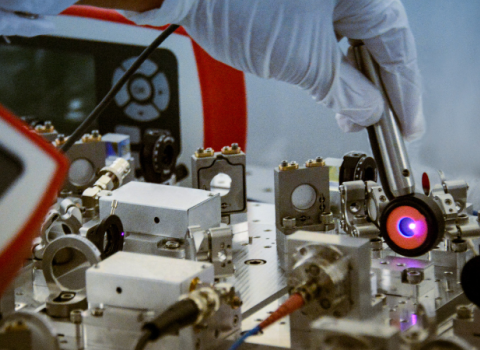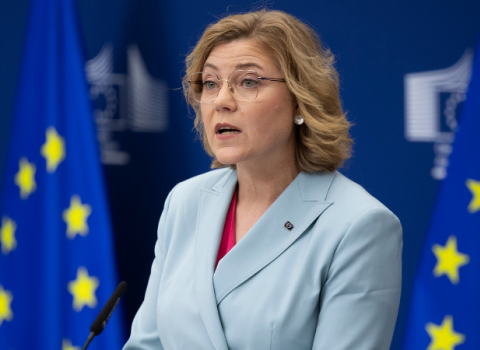A new Microsoft laboratory at the Delft University of Technology is the latest step towards making quantum computing a reality.
The Microsoft Quantum Lab Delft, which was opened today by King Willem-Alexander of the Netherlands, is the culmination of a partnership between Microsoft and QuTech to collaboratively research the building blocks for a quantum computer.
Leo Kouwenhoven, Scientific Director of Microsoft Quantum Lab Delft as well as Professor at Delft University of Technology, stated that “With the opening of this Lab, we see what is possible when business, science, and the government unite. Together, we have built a world-class laboratory in Delft which will enable us to expedite development of a revolutionary quantum computer. The Netherlands now has the necessary ingredients to develop the type of compute power that could drastically change humankind’s daily lives – from personalised medication, to the development of new renewable energy sources.”
Quantum possibility
While it’s beyond the scope of this article to explain the workings of quantum computing in detail (the video above provides a short high-level summary,) a strong grasp of quantum mechanics is not necessary to appreciate the advances that quantum computing could bring to the world.
Unlike current classical computers, quantum computers will be able to perform calculations and tasks at a far faster rate and a greater level of complexity than even the most powerful of today’s supercomputers. Harnessing this computational power has the potential to revolutionise society and the world that we inhabit.
One example that Professor Kouwenhoven cited is the discovery of new treatments against diseases. Presently, we commonly experiment with different molecules to create drugs which are then tested to confirm their effectiveness against certain diseases. “We don’t know how to predict or simulate processes in nature or biological systems,” Kouwenhoven explained. “We just try and see if it works or not – that’s just trial and error. If we had a quantum computer on hand, then we could use it to help solve these problems vastly more quickly and at a very fundamental level.”
Other problems quantum computing could help solve include environmental challenges such as the efficient use of scarce materials or the economical use of natural resources – both of which could help fight against global warming.
A quantum future
The opening of the new lab strengthens the Netherlands’ standing in quantum research, while also offering opportunities to other parties to become involved. During the opening, the Netherlands’ Secretary of State Mona Keijzer (Economic Affairs and Climate) stressed that science, industry and government should join forces to consolidate this leading position.
In addition, Ernst-Jan Stigter, General Manager of Microsoft Netherlands, asserted that “The new Microsoft Quantum Lab Delft enables the Netherlands to play a key role in the quantum economy. We therefore call on the country’s business community and other parties to prepare for quantum technology. Joint public-private investments in resources and infrastructure, as we see here today, are critical to a quantum future.”
For more information on quantum computing, please visit Microsoft Quantum.
This release was first published 21 February 2019 by Microsoft.





 A unique international forum for public research organisations and companies to connect their external engagement with strategic interests around their R&D system.
A unique international forum for public research organisations and companies to connect their external engagement with strategic interests around their R&D system.